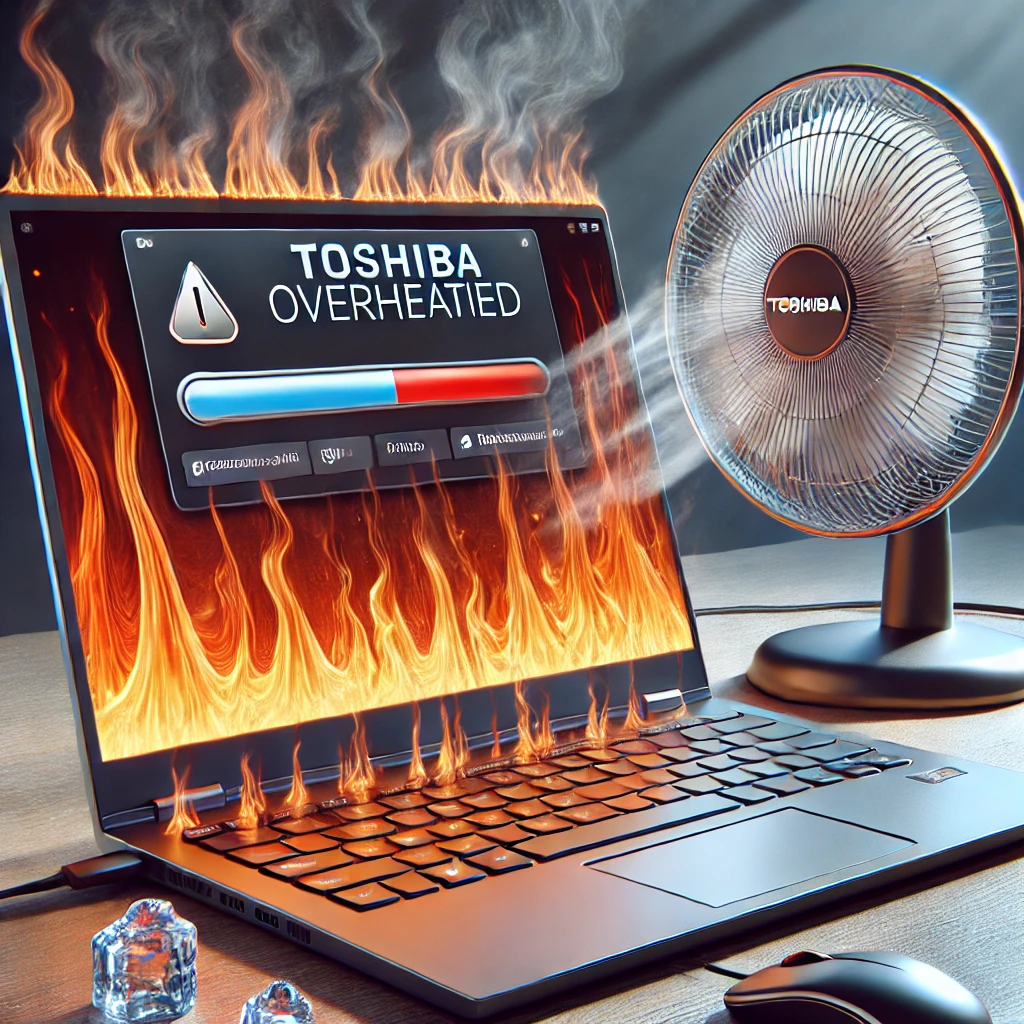Toshiba laptops are known for their reliability, but like any other device, they can experience issues such as overheating or sluggish performance. Understanding the causes and knowing how to resolve them can extend your laptop’s lifespan and enhance its performance. This guide will explore the most common reasons your Toshiba laptop may overheat or run slowly and provide actionable solutions to get it running smoothly again.
Causes of Overheating in Toshiba Laptops
- Dust Accumulation in Fans and Vents
Dust can block airflow, reducing the cooling efficiency of your laptop. Over time, this can lead to overheating. - High-Performance Tasks
Running resource-intensive applications or games can put additional stress on the CPU and GPU, causing them to overheat. - Aging Thermal Paste
The thermal paste between the CPU and the heatsink may dry out, reducing heat transfer efficiency. - Faulty Cooling System
Malfunctioning fans or broken vents can prevent proper heat dissipation.
Causes of Sluggish Performance
- Insufficient RAM or Storage
A lack of memory or a nearly full hard drive can slow down operations. - Background Applications
Too many programs running in the background can consume processing power. - Outdated Software or Drivers
Old operating systems or drivers can cause compatibility issues and slower processing. - Malware or Viruses
Malicious software can significantly degrade system performance.
Solutions for Overheating
- Clean the Fans and Vents
Use compressed air to remove dust. Make sure the laptop is powered off and unplugged before cleaning. - Use a Cooling Pad
A cooling pad provides additional airflow to keep the laptop cool during heavy usage. - Reapply Thermal Paste
If you’re comfortable, reapply thermal paste to the CPU. Alternatively, seek professional help. - Avoid Using the Laptop on Soft Surfaces
Always place your laptop on a hard, flat surface to ensure proper airflow.
Solutions for Running Slow
- Upgrade RAM or Storage
Adding more RAM or switching to an SSD can significantly improve speed. - Optimize Startup Programs
Disable unnecessary applications from starting up with the system to free up resources. - Run Antivirus Scans
Use reputable antivirus software to remove malware or viruses. - Update Drivers and Software
Ensure your operating system and drivers are up-to-date for optimal performance.
FAQs
1. Why does my Toshiba laptop get hot even when idle?
Your laptop may have dust buildup or background processes consuming CPU resources. Check for unnecessary programs running in the background and clean the vents.
2. Can overheating damage my Toshiba laptop?
Yes, prolonged overheating can damage internal components like the CPU or GPU. Address the issue immediately to prevent permanent damage.
3. How do I know if my laptop’s performance issues are hardware or software-related?
Run a diagnostics test through Toshiba’s support tools or check for recent software updates and driver issues.
4. Does Toshiba warranty cover overheating or performance issues?
Typically, warranties cover manufacturing defects, not issues caused by regular wear and tear or user negligence. Check your warranty status here.
When to Seek Professional Help
If you’ve tried these solutions and your Toshiba laptop still overheats or runs slowly, it’s time to seek professional assistance. A certified technician can perform advanced diagnostics and repairs.
Maintaining Your Toshiba Laptop
- Regular Cleaning: Keep fans and vents dust-free.
- Proper Use: Avoid resource-heavy tasks for prolonged periods.
- Software Updates: Keep your operating system and applications current.
- Routine Scans: Regularly check for malware and viruses.
By identifying the cause and applying the appropriate solutions, you can keep your Toshiba laptop running smoothly. For more assistance, visit Toshiba Support or consult your laptop’s manual.
